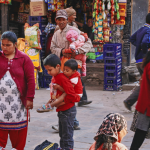To strengthen the global pro bono movement, iProbono’s team from UK, India, Pakistan, Bangladesh and Sri Lanka joined their colleagues in Nepal to attend the 8th Asia Pro Bono Conference (8APBC) in Kathmandu last year. This dynamic and inspiring gathering of pro bono lawyers from across the world is organised annually by a network consortium primarily based in Asia, led by the International Secretariat and the South Asia Regional Organising Committee including iProbono. Bruce Lasky, a key member of the Secretariat remarked that “The 8th Asia Pro Bono Conference & A2J Exchange clearly exceeded everyone’s expectations in so many ways, including substance, size and of course impact. The way the convening has grown and strengthened over the years, to truly become a regional and global catalyst in bringing about greater access to justice was remarkable to see in Nepal. Equally remarkable was how the Conference, and now the A2J Exchange, was organised by a regional committee of South Asia, in such a collaborative and supportive manner. This has set the trend for years to come, which will now be applied in Cebu, the Philippines in September 2020“.

As iProbono’s South Asia Program Analyst, I was part of the 8APBC from its inception and will be part of the team organising this year’s events in the Philippines. This article provides a visual summary of the lively confluence of events, including an Access to Justice Exchange either side of the APBC. Members of the judiciary, legal practitioners, law professors, lawyers and law students from across different jurisdictions contributed to the interesting mix of plenaries, break-out sessions and access to justice workshops.
Mariam Faruqi, iProbono’s South Asia Regional Director, and Bruce Lasky inaugurated the conference and Mariam reflected on the relevance of having a South Asian perspective on the pro bono movement. They stressed the importance of employing learnings from the conference to implement best practices and take the social justice movement forward in our respective jurisdictions.
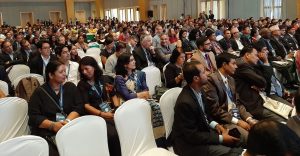
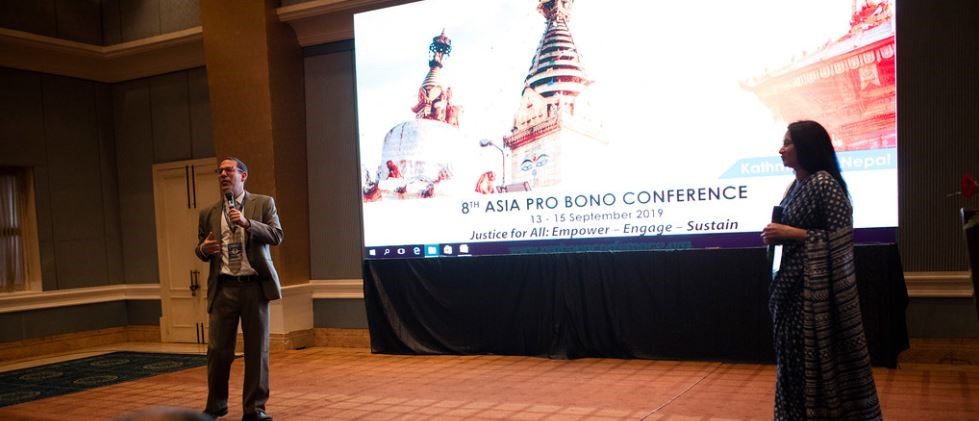
Setting the Scene:
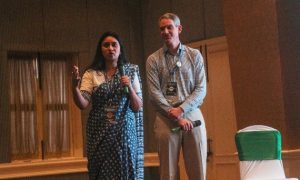
Empowering Values, Engaging Elements and Sustainable Access to Justice Impact of Pro Bono’ facilitated by Mariam Faruqi pulled together the values and objectives of the APBC and gave us a chance to think about who our pro bono heroes are. Senior players in the pro bono movement Andrew Valentine of DLA Piper and Sara Hossain, Executive Director, BLAST spoke of their experience in the field and Trishna Kriplani from Trust Law shared a perspective from the Foundation. They emphasised on the relevance of promoting regional alliances to strengthen the pro bono movement.


‘Growing the Pro Bono Movement – APBC Updates and Reports’ initiated a discussion of recent developments in the pro bono movement and initiatives that are rooted in the APBC movement. I was a part of this active session facilitated by Bruce with Maja Daruwala, Senior Advisor, Tata Trusts and Commonwealth Human Rights Initiative; Mary Catherine Alvarez, Executive Director StreetlawPH; Jane Sanders, Executive Director, Shopfront Youth Legal Centre; Lindsay Ernst, Faculty of Law, Chinese University of Hong Kong; Haya Emaan Zahid, Executive Director, Legal Aid Society, Pakistan. I elaborated on iProbono’s Equality Law Programme based in Sri Lanka and building a network of pro bono lawyers to support this work.
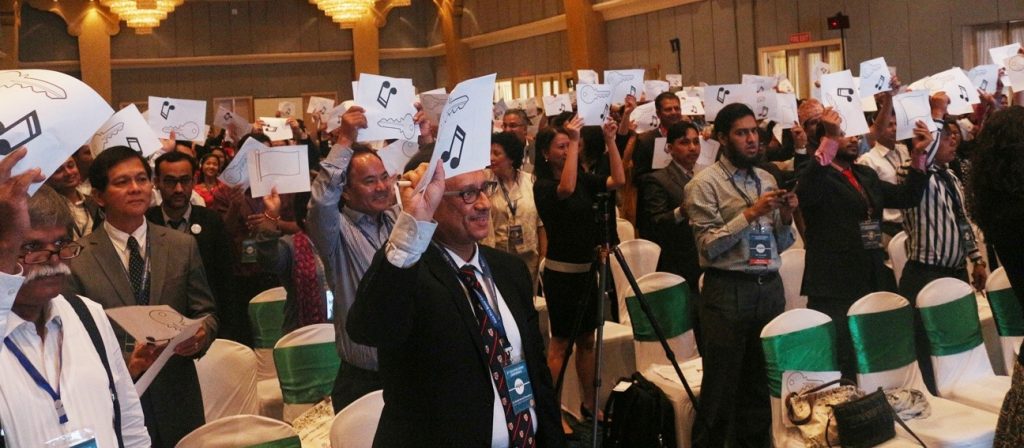

Food, health, and housing: What are we protecting?
How can pro bono lawyers protect economic, social and cultural rights in South Asia?
The session ‘Effective Pro Bono Frameworks to Promote and Protect Economic Social and Cultural Rights (in South Asia)’ facilitated by Mariam Faruqi brought together experts in the field who are leading iProbono’s program in this area. Honourable Hari Phuyal, Judge, Supreme Court of Nepal; Dr. Mizanur Rahman, Professor, Faculty of Law, University of Dhaka and Dr. Mara Malagodi Assistant Professor of Law, Chinese University of Hong Kong charged the room with their analysis and Barun Ghimire, iProbono’s Legal Analyst in Nepal provide an insight into effective litigation strategies.
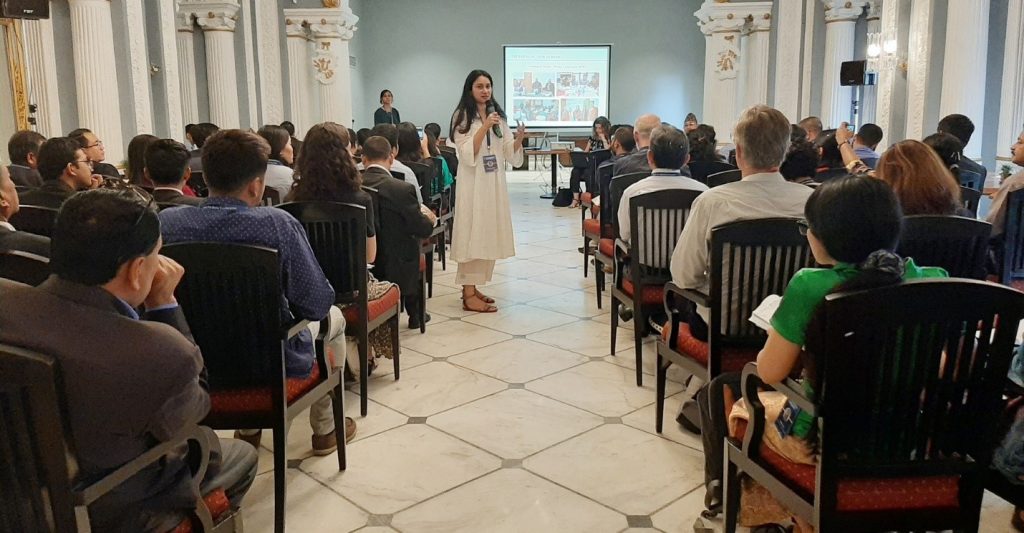
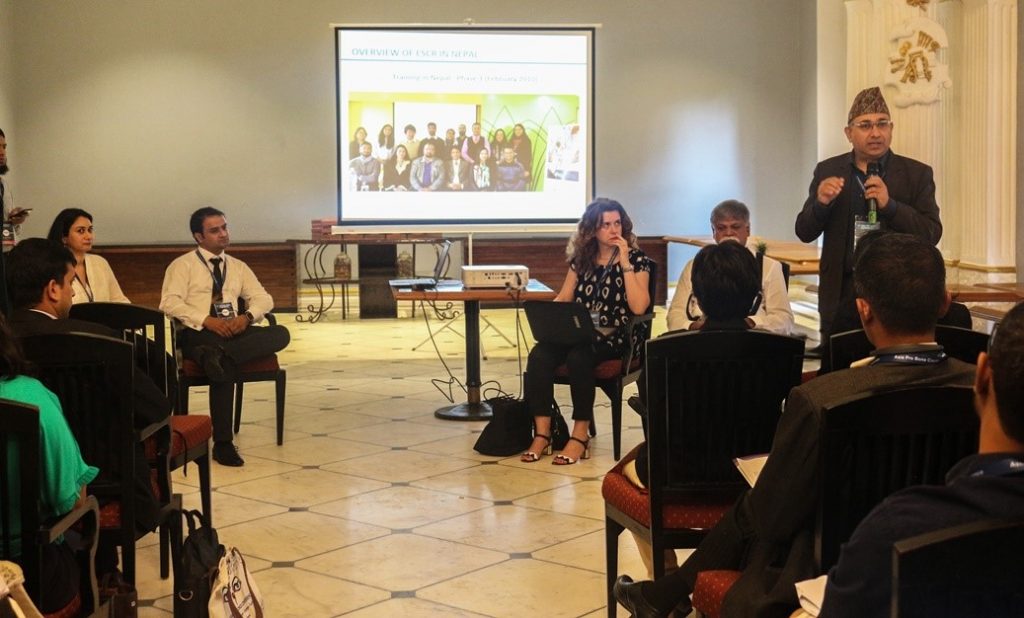
Gender Rights LGBT+ and Inclusive Pro Bono: Who are we protecting?
How can pro bono lawyers improve access to justice for the LGBT+ community?
Aritha Wickramasinghe, iProbono’s Equality Law Director, Sri Lanka shared expertise with presenter Nay Lin, MSM Network and other participants who discussed how rights of LGBT+ community are violated. They emphasised on the importance of a collaborative movement to eliminate homophobia, to promote and uphold the basic human rights of all individuals regardless of their gender identities and sexual orientation.

Delivery of pro bono support: How can we protect vulnerable communities?
In tune with APBC’s emphasis on participants leaving with strategies and best practices that can be replicated in the region, some sessions were focused on the ‘how ‘question.
Pro Bono ADR: Can ADR be more effective than litigation to ensure access to justice for all?
Naima Ahmed, iProbono’s Legal Analyst, Pakistan facilitated this discussion on the dynamics between pro bono support and Alternative Dispute Resolution mechanisms. The panel which included Sumreen Ali Syeda, Legal Aid Society, Pakistan; Kritagya Shah, Himal Innovative Development and Research, Nepal; Linda Al Kalash, Tamkeen Fields for Aid, Jordon and Jameel Hussain Junejo, Legal Aid Society, Pakistan elaborated on the flexibility, efficiency and low cost of ADR.
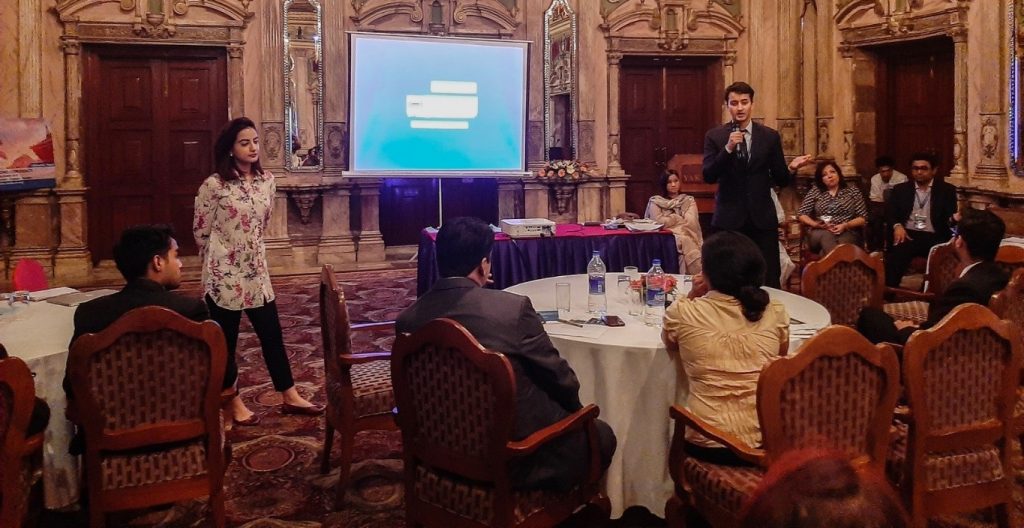
Naima further discussed the various techniques to provide pro bono mediation and emphasised on the need to impart mediation and negotiation skills training to law students from initial years of law school and the importance of encouraging them to give due consideration to alternative methods of resolving disputes while they explore suitable legal interventions for their cases.
Street Law: How can we promote justice education within vulnerable communities?
A full-day workshop was curated by Arpeeta Shams Mizan, iProbono’s Legal Analyst in Bangladesh; Lindsay Ernst, and Angbeen Atif Mirza, Assistant Professor, Shaikh Ahmed Hassan School of Law, Pakistan to build capacity among legal service providers and law students to empower communities by educating them about their rights. Through fun learning methods, the participants explored the challenges of delivering street law training to a diverse audience and ways to overcome these challenges to ensure maximum learning for all. In a follow – up session, Arpeeta Shams Mizan, Dr. Mizanur Rahman, University of Dhaka and Dr. S.M. Masum Billah, Jagannath University explained and demonstrated through interactive activities how street lawyering, human rights lawyering, and community lawyering can be utilised to empower the poor and ensure greater access to justice.

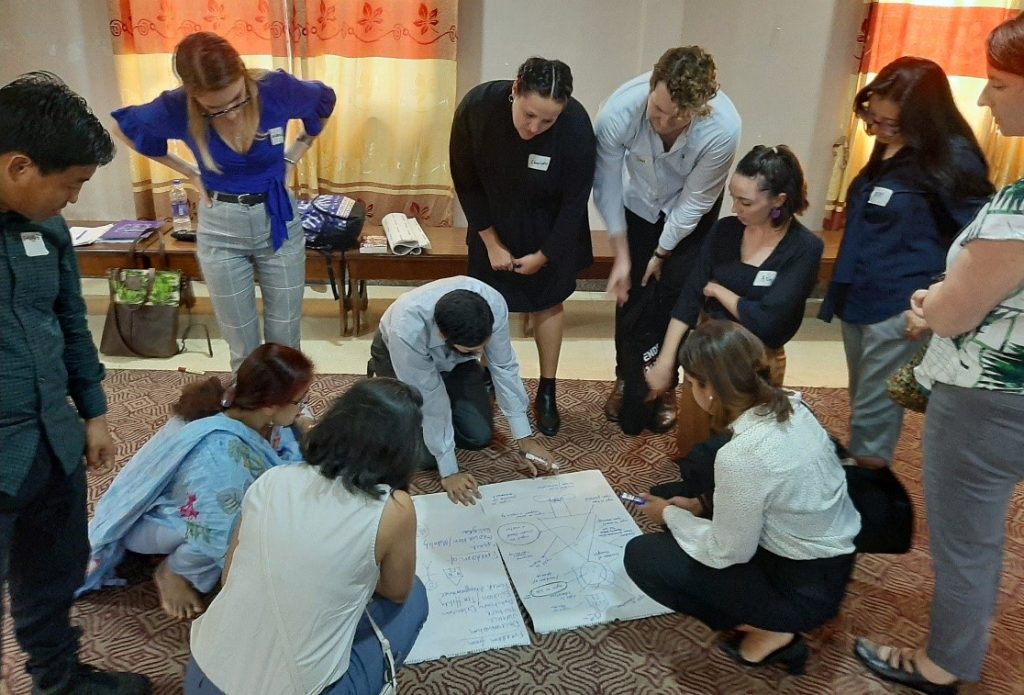
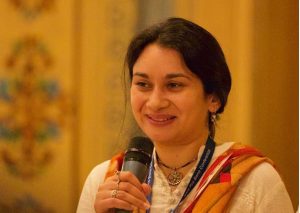
Telling stories: ‘Alternative Voices in Social Justice: Informing the Pro Bono Movement’, an innovative session curated by iProbono acknowledged ‘alternative voices’ and the importance of storytelling in social justice movements that complement the mainstream legal discourse in promoting inclusive political structures, accountable institutions and democratic space for dissent. Taimur Rahman, Founder of the band Laal and Patrick Burgess, Co-Founder of Asia Justice and Rights sang their stories of political movements and human rights while Wendy Morrish, Co-Founder of BABSEACLE got the participants moving to support Asia Justice Marathon. Shanuki De Alwis, General Manager, Vision 1 shared her use of documentary to promote women’s rights. Mariam Faruqi and I co-facilitated the workshop session and led group activity during which participants created and showcased stories about social justice issues through poetry, music, and art.
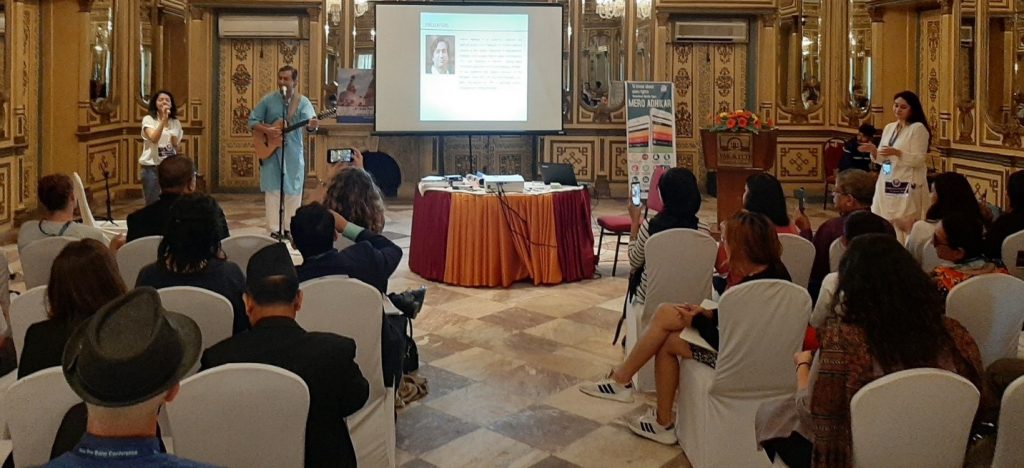
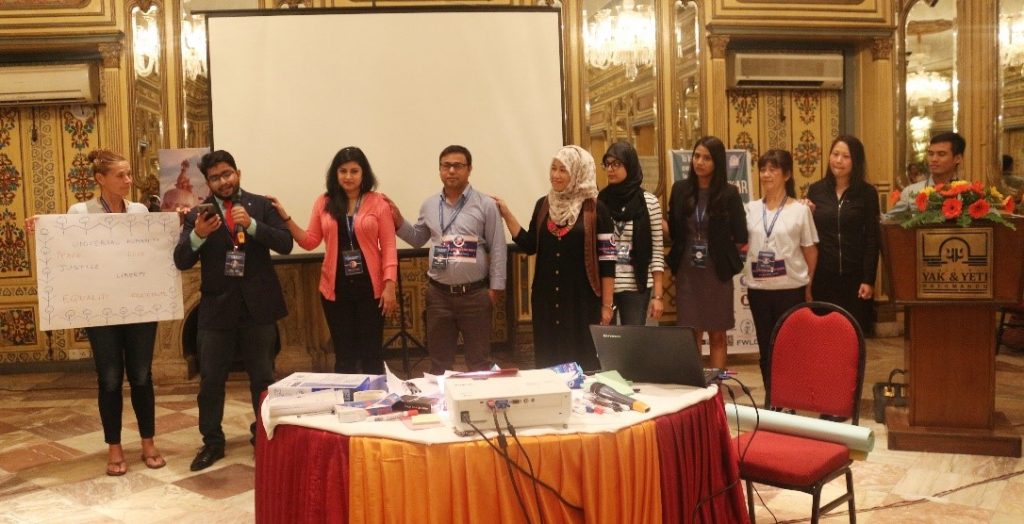
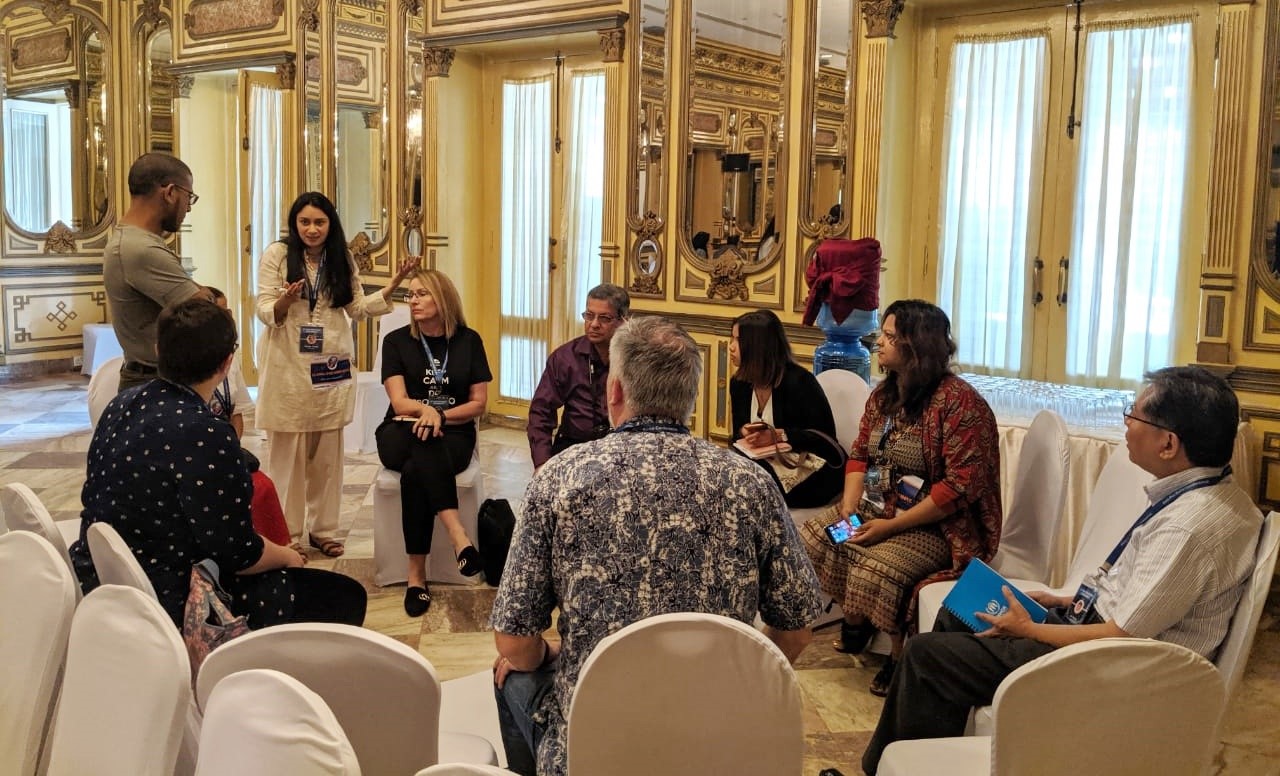
9th Asia Pro Bono Conference is being held in Cebu, the Philippines from 24-26 September 2020. It will explore the pro bono movement’s vision for 2020 and the years to come, by focusing on developing strategies to make pro bono services mainstream in the legal discourse through a proactive approach to legal service delivery. iProbono looks forward to the continued partnership with the Asia Pro Bono Consortium and strengthening the pro bono movement in the region. For more information please contact: meenaksh.menon@dev.matsio.com/matsio/oldiprobono

Meenakshi Menon – South Asia Program Analyst, iProbono.



